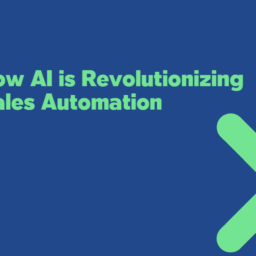Artificial Intelligence (AI) has evolved from a futuristic concept to an integral part of modern business strategy. In 2024, AI is revolutionizing how businesses make decisions, transforming data into actionable insights, optimizing processes, and driving innovation. As AI technology becomes more sophisticated, its impact on business decision-making continues to grow, offering unprecedented opportunities and challenges. Here’s a deep dive into how AI is shaping decision-making in the business world this year.
1. Accelerating Data-Driven Decisions
What It Is:
AI enhances the ability to process vast amounts of data quickly and accurately, enabling businesses to make more informed decisions based on real-time insights.
Why It Matters:
In 2024, data is more abundant than ever. AI helps businesses analyze this data efficiently, uncovering patterns, trends, and correlations that would be impossible to detect manually.
Impact on Decision-Making:
- Real-Time Analytics: AI-powered tools provide real-time analytics, allowing businesses to make quick, data-driven decisions. This is particularly valuable in fast-paced industries like finance and retail, where timely decisions can have a significant impact on profitability.
- Predictive Analytics: AI enables predictive analytics, forecasting future trends based on historical data. This allows businesses to anticipate market changes, customer behavior, and potential risks, leading to more proactive and strategic decision-making.
- Enhanced Accuracy: By reducing human error in data analysis, AI improves the accuracy of business decisions, leading to better outcomes and reduced risk.
2. Optimizing Operational Efficiency
What It Is:
AI automates routine tasks and optimizes processes, freeing up resources and enabling businesses to focus on higher-level strategic decisions.
Why It Matters:
Operational efficiency is crucial for growth and profitability. AI helps businesses streamline operations, reduce costs, and allocate resources more effectively.
Impact on Decision-Making:
- Automation of Routine Tasks: AI automates repetitive tasks, such as data entry, reporting, and customer service, allowing employees to focus on strategic initiatives that drive growth.
- Process Optimization: AI identifies inefficiencies in processes and suggests improvements, helping businesses optimize operations and make more effective decisions about resource allocation.
- Supply Chain Management: AI enhances supply chain management by predicting demand, optimizing inventory levels, and reducing waste. This leads to more informed decisions about procurement, production, and distribution.
3. Enhancing Customer Experience and Personalization
What It Is:
AI-driven insights enable businesses to personalize customer interactions, offering tailored experiences that drive engagement and loyalty.
Why It Matters:
In 2024, customer expectations for personalized experiences are higher than ever. AI allows businesses to deliver these experiences at scale, enhancing customer satisfaction and retention.
Impact on Decision-Making:
- Customer Segmentation: AI helps businesses segment their customer base more precisely, enabling targeted marketing campaigns and personalized product recommendations that resonate with individual customers.
- Sentiment Analysis: AI analyzes customer feedback and social media interactions to gauge sentiment, providing businesses with insights into customer preferences and pain points. This informs decisions on product development, marketing, and customer service strategies.
- Behavioral Prediction: AI predicts customer behavior, such as purchase patterns and churn risk, allowing businesses to make proactive decisions to enhance customer engagement and reduce attrition.
4. Driving Innovation and Competitive Advantage
What It Is:
AI fosters innovation by enabling businesses to explore new ideas, develop cutting-edge products, and stay ahead of the competition.
Why It Matters:
In a rapidly changing market, innovation is key to maintaining a competitive edge. AI empowers businesses to innovate faster and more effectively.
Impact on Decision-Making:
- Product Development: AI accelerates product development by analyzing market trends, customer needs, and competitor offerings. This enables businesses to make informed decisions about product design, features, and pricing.
- Market Intelligence: AI gathers and analyzes market data, providing businesses with insights into emerging trends and potential opportunities. This supports strategic decision-making in areas such as market entry, expansion, and diversification.
- Agile Strategy: AI enables businesses to adopt a more agile approach to strategy, allowing them to quickly adapt to changes in the market and capitalize on new opportunities.
5. Mitigating Risks and Enhancing Security
What It Is:
AI plays a critical role in risk management by identifying potential threats, vulnerabilities, and compliance issues before they escalate.
Why It Matters:
In an increasingly complex and interconnected world, managing risk is more challenging than ever. AI helps businesses anticipate and mitigate risks, protecting their assets and reputation.
Impact on Decision-Making:
- Fraud Detection: AI detects anomalies in financial transactions, flagging potential fraud before it occurs. This allows businesses to make prompt decisions to prevent financial loss and protect customer data.
- Compliance Monitoring: AI monitors regulatory changes and compliance requirements, ensuring that businesses remain compliant with industry standards. This reduces the risk of legal penalties and reputational damage.
- Cybersecurity: AI enhances cybersecurity by identifying and responding to threats in real-time. This supports decision-making related to IT investments, security protocols, and incident response strategies.
6. Improving Human-AI Collaboration
What It Is:
AI complements human decision-making by providing data-driven insights and automating routine tasks, allowing humans to focus on complex, creative, and strategic decisions.
Why It Matters:
AI is not a replacement for human judgment but a tool that enhances it. The synergy between AI and human intelligence leads to better decision-making and outcomes.
Impact on Decision-Making:
- Decision Augmentation: AI augments human decision-making by providing relevant data and insights, helping leaders make more informed and effective decisions.
- Bias Reduction: AI helps reduce cognitive biases in decision-making by offering objective analysis based on data rather than subjective opinions.
- Enhanced Creativity: By handling routine tasks, AI frees up time for employees to engage in creative problem-solving and strategic thinking, driving innovation and growth.
7. Ethical Considerations and AI Governance
What It Is:
As AI becomes more integrated into business decision-making, ethical considerations and governance are becoming increasingly important to ensure responsible AI use.
Why It Matters:
AI decisions can have significant ethical implications, from bias in algorithms to privacy concerns. Businesses must navigate these challenges carefully to maintain trust and integrity.
Impact on Decision-Making:
- Bias Mitigation: AI governance frameworks help businesses identify and mitigate biases in AI algorithms, ensuring fair and equitable decision-making.
- Transparency: Businesses are increasingly expected to be transparent about how they use AI in decision-making, which can influence public perception and customer trust.
- Ethical AI: Companies that prioritize ethical AI practices are better positioned to build trust with customers, partners, and regulators, supporting sustainable growth and long-term success.




